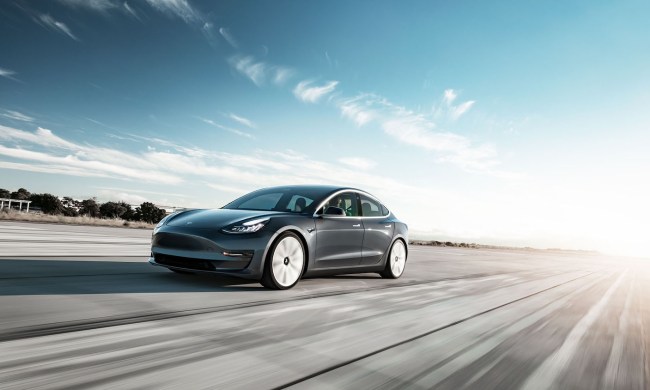Earlier this year, Fiat Chrysler Automobiles (FCA) made a deal with what was then the Google self-driving car project to supply Chrysler Pacifica Hybrid minivans for conversion into prototype autonomous vehicles.
The Google self-driving project is now Waymo, but FCA is still involved. The automaker just completed production of 100 Pacifica Hybrid minivans for the project. They’re currently being outfitted with Waymo’s suite of sensors and control systems, and will begin testing in 2017.
The Pacifica Hybrid is actually a plug-in hybrid, meaning it can plug into an external power source to recharge, like an electric car. Some modifications were made to the minivans’ electrical systems, powertrains, and chassis to accept the self-driving hardware. Vehicles have already undergone testing at FCA’s proving grounds in Chelsea, Michigan, and Yucca, Arizona, as well as at Waymo facilities in California.

FCA and Waymo each sent a team of engineers to a site in southeastern Michigan to collaborate on the project. This marks Waymo’s first collaboration with an automaker on autonomous-driving tech, and FCA’s first significant entry into the field. As a unit of Google (and then Alphabet), Waymo first tried to go it alone in commercializing its technology, but current CEO John Krafcik has emphasized partnerships with existing car companies.
That shift in strategy was crystallized with the announcement last week by Alphabet of the creation of Waymo as a separate company to handle future self-driving car development. With the launch of Waymo, Alphabet is ending work on its self-developed pod-like autonomous car. Krafcik has said Waymo is not in the business of making cars.
FCA and Waymo are kicking their partnership into high gear just as other companies are ratcheting up their own self-driving car efforts. Uber recently deployed a fleet of self-driving cars in San Francisco, while General Motors announced last week that it would begin testing autonomous cars on public roads in Michigan.


